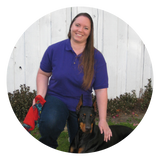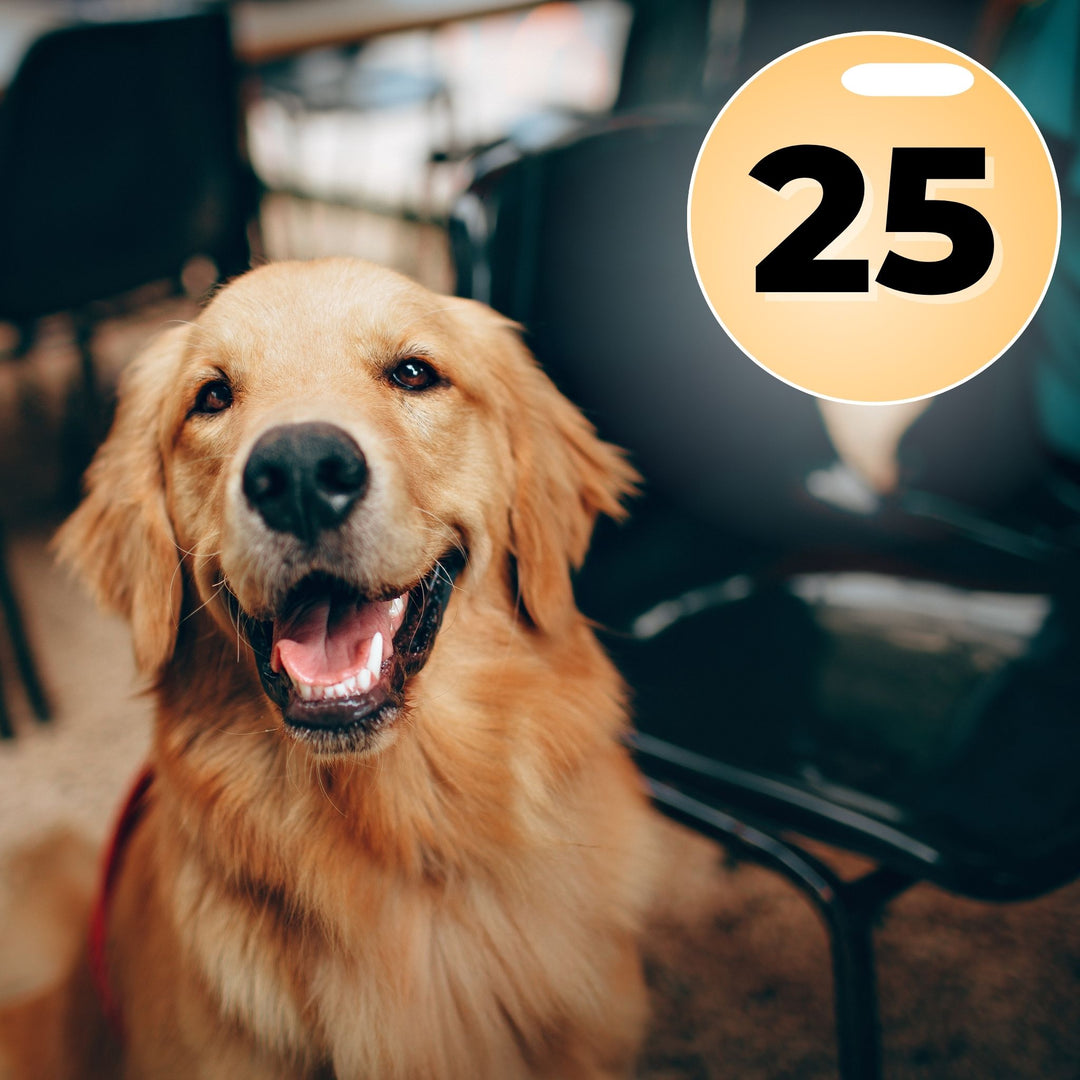How You Start and Finish Matters

As handlers, we are quite attentive and focused to what happens within a search itself as the dog is working to solve the various odor puzzles, and for good reason! However, what about when we are approaching the start line, or have successfully found all the hides, shouldn’t we be concerned about those events as well? In my humble opinion, the answer is a resounding, “Yes, yes we should”.
STARTING OFF ON THE RIGHT FOOT
Approaching a start line is an art and must be customized from dog-to-dog. However, one thing is consistent across the board: HOW you approach, and cross a start line, will indeed set the tone for the rest of the search.
If you are distracting your dog, you are denying them the golden opportunity to get a whiff of the odor and determine where it may be coming from. If you are fumbling with your equipment (leash or long line, fussing with your timer, air flow flag and so on), you are inserting stress and disorganization right at the jump! If you are being dragged to the search area and are flummoxed, or simply embarrassed as the judge and others are looking on, this is not the best headspace to be in before starting your search. Neither would your dog do well if they were bombarded by triggers, reacting to every single one, as they were approaching the start line. Doing so would result in your dog either being so over-the-moon aroused they quite literally cannot focus on searching, or were completely and utterly terrified or shutdown that the thought of searching is the furthest thing from their mind.
See, what happens before you even start searching does indeed matter!
Also, HOW you cross the start line can make all the difference in the world. If you are holding the dog at your side, you could be inadvertently blocking them from accessing odor at the threshold that is on the other side of you. Likewise, if you step off immediately behind your dog as they cross the start line, you may "socially push" them through the threshold right pass a hide that could be there. If your long line is tangled and you accidentally jerk on it as your dog starts to search, they could consider this to be a correction! Each of these examples are common occurrences that negatively affect the search and may even cause a team to miss a hide.
But wait, there’s more! How you position yourself, and your dog, to the start line itself is also a factor to consider. If you are too close to the start line, your dog’s nose may very well be crossing it before you were ready to release them to search. That means your time is starting WAY before you thought it was...trust me, I speak from experience. However, if you are too far away from the start line, your dog may try to circumvent those dreaded start line cones altogether to follow odor, thus resulting in your frantic attempt to redirect them, interrupting the entire flow of the search!
With all these potential issues before you even start searching, what is a handler to do?! Collect data by videoing your searches. Be certain to capture your approach to the search, not just the search itself. Your goal: determine what is happening now, what is working and what needs to be changed or adjusted.
For instance, if your dog is gung-ho to play the game and are practically dragging you to the search area, we do not necessarily want to curb their enthusiasm. We want them to love the game! But at the same point, we need to ensure you are safe (there is no tripping, falling or dying in Scent Work!) and not stressing yourself out. Perhaps doing some exercises completely outside the context of Scent Work would be a good idea. Building a brand-new routine where the dog can walk with you, not in heel position per say, but not dragging you either, while still maintaining their focus on what is ahead. Once this routine was solid, you can start using it in your Scent Work training sessions as well.
For those dogs who are struggling with triggers, address them outside the context of Scent Work first. Help the dog develop the skills needed to better deal and cope with these triggers all with the plan of incorporating them in your Scent Work training sessions later.
Hone your own skills as a handler, be it how you can handle your leash or long line, the type of treats and treat pouch you use or practicing how to use other equipment such as the timer or air flow flag. Ensure you are well-versed in handling these tools in an effective and efficient manner. It is common to place all the responsibility on the dog, but we as handlers need to ensure our own skills are solid as well. Do not cost your team Qs for failure to step up as a handler!
CELEBRATE A JOB WELL DONE
Alright, you are now ready to evaluate how you approach your searches and start lines and make any necessary adjustments. That is a great start...but what about after a search is all done? Why not evaluate that as well?
In my opinion, celebrating with a dog for a job well done is a-must. Scent Work is hard and demanding on the dog. If they make the calculation that this is no longer a fun game worth playing, we are in trouble! You CANNOT force a dog to hunt, period.
Therefore, we should take advantage of every opportunity to reward them, to ensure they still consider this to be a worthwhile, fun and engaging game. Yet time and time again, handlers are seen simply leaving a search area all ho-hum once a search is done, putting their dog into a crate, and then going off to do something else. How boring!
Now, as with everything else in dog training, HOW you celebrate with your dog needs to be customized. This will depend on your dog’s personality and preferences, as well as what you are doing in each moment. As an example, if you play the game on your own for fun with no intention of competing, having a party routine that allows the dog to chase tossed treats may work extremely well...but this would most definitely earn you faults at a trial. Still, getting the dog to move, and even run, after they mentally stretched themselves solving a challenging odor puzzle can be just what the doctor ordered! However, if you wanted to create a routine that would also work at trial, perhaps a combination of lovely verbal praise, high-octane tricks, such as a high nose touch or spin, along with playing some tug would work best.
Some other considerations include what the dog is doing after this search. Meaning, if they are immediately heading to another search, the last thing you want to do is exhaust them or overly arouse them! Doing either could undercut the dog's ability to be effective in this subsequent search.
However, the flip side of that coin is if you were heading back to your crating area but know you must go through some high-traffic areas to do so. Having a “traveling celebration routine”, where the dog can happily stay focused on you, can be just what you need to safely get from Point A to Point B. This ensures the dog is being rewarded for a job well done instead of worrying about potential triggers.
Once again, evaluate what you are doing now. More likely than not, you can up the ante in how you are celebrating with your dog after a search. This will also help you stay out of a funk if a search does not go as planned. These celebration routines are not just for the dog, they can also help you stay happier too!
FINAL THOUGHTS
It is true that handlers have a ton of things to be mindful of during the search itself, however it is extremely common for them to discount what happens as they are approaching, or when they have finished, a search. Instead, set your team up for success right from the start and celebrate when you have done well. Doing so can result in your searches being smoother and more joyful.
Are you looking for more tips on developing in a start line routine? Be sure to check out the Start Lines: From Beginning to End Webinar with Lori Timberlake.

Dianna has been training dogs professionally since 2011. She has done everything from teaching group training classes and private lessons, to specializing in working with fearful, reactive and aggressive dogs, to being a trial official and competition organization staff member.
Following a serious neck and back injury, Dianna was forced to retire from in-person dog training. But she was not ready to give up her passion! So, she created Pet Dog U and Scent Work University to provide outstanding online dog training to as many dog handlers, owners and trainers possible…regardless of where they live! Dianna is incredibly grateful to the amazingly talented group of instructors who have joined PDU and SWU and she looks forward to the continued growth of PDU and SWU and increased learning opportunities all of these online dog training platforms can provide.
In June 2021, Dianna and her business partner, Sean McMurray launched Cyber Scent Work, Inc., an organization that operates in the gray space between training and trialing in Scent Work. With Cyber Scent Work, Inc., handlers have the opportunity to earn Qs, titles and ribbons while also receiving helpful training advice regardless of whether they qualify or not! Be sure to check out Cyber Scent Work, Inc., you will be happy you did!
Join Our Newsletter
Stay up to date with all the happenings at Scent Work University, including the release of new online courses, seminars, webinars, eBooks and receive exclusive promotions and discounts!




